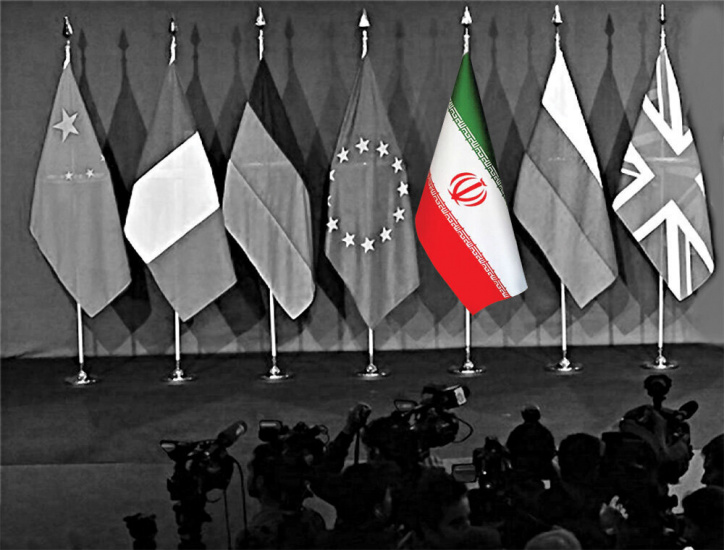Running out of patience

On December 10, the official gazette of record for the Islamic Republic of Iran published a 9-article law that set the stage for Iran to substantially increase its nuclear activities, including raising the level of uranium enrichment to up to 20% in early January.
The nuclear law, officially called “Strategic Action to Lift Sanctions and Protect Nation’s Rights,” outlines a step-by-step strategy for Iran to force the West into reconsidering its sanctions policy against Iran by increasing nuclear activities. It stipulates that the Iranian government should take certain nuclear measures such as raising the level of uranium enrichment to 20% and suspending the voluntary implementation of the Additional Protocol to the nuclear Non-Proliferation Treaty (NPT) in few months if the Western parties failed to honor their obligations under the JCPOA.
The sixth article of the law clearly stipulates that if the remaining parties to the JCPOA – Germany, France, China, Russia and the UK- failed to facilitate Iran’s oil exports and the return of Iranian oil revenues in two months, the Iranian government would be obliged to stop inspections beyond the International Atomic Energy Agency safeguards, including the voluntary implementation of the Additional Protocol.
On January 4, the Iranian government started to implement the nuclear law by increasing uranium enrichment to 20%. On this day, spokesman for the Iranian government Ali Rabiei told Iranian media outlets that the country resumed 20% uranium enrichment at the Fordow nuclear plant, where Iran is banned to do any enrichment activities under the terms of the nuclear deal.
“The process of producing enriched uranium to 20% purity has begun. And the first product of UF6 enriched uranium will be produced in a few hours,” Rabiei said at the time.
According to Rabiei, the government of Hassan Rouhani made the decision to raise the level of uranium enrichment in line with the parliamentary nuclear law. He pointed out that President Rouhani has issued an order stipulating that the nuclear law that was passed by the Parliament in early November should be implemented.
Foreign Minister Mohammad Javad Zarif also stated that the resumption of 20% uranium enrichment was done in line with the nuclear law.
“We resumed 20% enrichment, as legislated by our Parliament. IAEA has been duly notified. Our remedial action conforms fully with Para 36 of JCPOA, after years of non-compliance by several other JCPOA participants. Our measures are fully reversible upon FULL compliance by ALL,” the chief Iranian diplomat said in a tweet hours after Iran resumed the 20% uranium enrichment.
Iran’s move to raise the level of uranium enrichment was another sign that Tehran is determined to resume its nuclear program should the U.S. failed to lift its economic sanctions against Iran. It also indicated that Iranians are running out of patience, according to the Iranian foreign minister.
In an article published by Foreign Affairs Magazine on Friday, Zarif wrote Iran has exercised strategic restraint over the past few years but it is now reviewing its options to change the situation.
“During the past four years, we have, sadly, come very close to catastrophe several times. Iran has exhibited strategic restraint throughout this period. But Iranians are running out of patience, as legislation our parliament passed in December clearly indicates: the new law requires Iran to boost uranium enrichment and limit UN inspections if sanctions are not removed by February,” Zarif wrote.
He implied that if the Biden administration and its European allies don’t hurry to salvage the nuclear deal, they will lose the opportunity to redress what Trump destroyed over the course of his administration.
“The window of opportunity for the new U.S. administration will not be open forever. The initiative squarely rests with Washington. The Biden administration’s first step ought to be to seek to redress—rather than attempt to exploit—Trump’s dangerous legacy of maximum failure. It can begin by removing all sanctions imposed since Trump assumed office and seek to reenter and abide by the 2015 nuclear deal without altering its painstakingly negotiated terms,” Zarif said.
The U.S. can still save the JCPOA but the Biden administration needs to know that the more it drags its feet on reviving the JCPOA, the more it moves away from getting the deal revived. Iranians are fed up with the U.S. non-compliance with its obligations. They are like a soldier having his hand on the trigger, waiting for the commander to issue an order to open fire. And the order may be issued in February when the Iranian government will be required by law to expel the international inspectors.
Ahmad Amirabadi, a member of the Parliament Presiding Board, said in early January that Iran will definitely expel the IAEA inspectors if sanctions against the Islamic Republic are not lifted by February 21.
“Iran will undoubtedly stop the voluntary implementation of Additional Protocol if the sanctions against Iran, especially in finance, banking and oil sectors are not lifted by the mentioned day. This is a law passed by the Iranian Parliament. The government is committed to implementing this law,” he warned. “We gave the U.S. a one-month opportunity. The new U.S. administration will take the office on January 21.”
Source: Terhan Times

